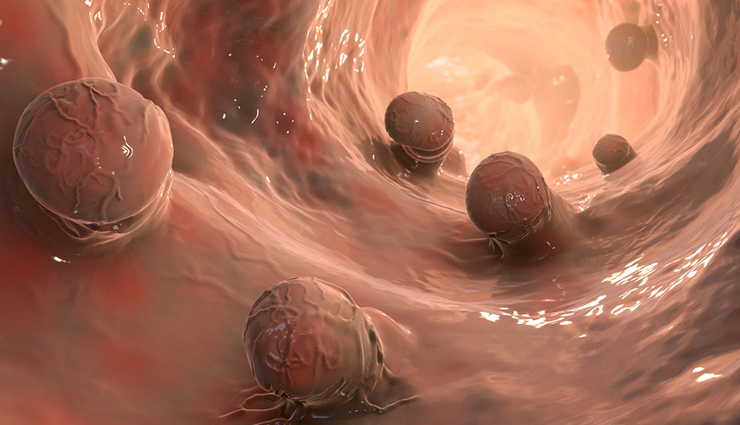- Home›
- Healthy Living›
- 7 Early Signs Of Bowel Cancer You Should Not Ignore
7 Early Signs Of Bowel Cancer You Should Not Ignore
By: Priyanka Maheshwari Thu, 15 Aug 2024 5:17:34

Bowel cancer, also known as colorectal cancer, refers to cancer that begins in the colon or rectum, which are parts of the large intestine. The colon is the part of the large intestine that absorbs water and salts from the material that hasn’t been digested as food, while the rectum is the last portion of the large intestine, leading to the anus.

Here’s a brief overview:
* Types: The most common type of bowel cancer is adenocarcinoma, which starts in the cells lining the colon or rectum. There are other, less common types like carcinoid tumors, lymphomas, and sarcomas.
* Risk Factors: Factors that may increase the risk of developing bowel cancer include age, family history of colorectal cancer or polyps, certain genetic conditions (like Lynch syndrome or familial adenomatous polyposis), a diet high in red or processed meats, smoking, heavy alcohol use, and a sedentary lifestyle.
* Symptoms: As mentioned earlier, symptoms can include changes in bowel habits, blood in stools, abdominal pain, unexplained weight loss, and fatigue.
* Diagnosis: Bowel cancer is usually diagnosed through a combination of physical exams, imaging tests (like colonoscopy or CT scans), and biopsy.
* Treatment: Treatment options depend on the stage of cancer and may include surgery, chemotherapy, radiation therapy, or targeted therapy. Early detection is crucial for more effective treatment and a better prognosis.
Types
* Adenocarcinoma: The most common type, originating in the glandular cells lining the colon or rectum.
* Carcinoid Tumors: These are neuroendocrine tumors that typically start in hormone-producing cells of the digestive system.
* Lymphomas: Cancers of the lymphatic system that can also affect the colon.
* Sarcomas: Cancers that originate in the connective tissues, including those in the bowel wall.

Risk Factors
* Age: Most cases occur in people over 50, but it can occur in younger people.
* Family History: A family history of colorectal cancer or polyps can increase risk.
* Genetic Conditions: Conditions like Lynch syndrome or familial adenomatous polyposis (FAP).
* Diet: High consumption of red or processed meats and low fiber intake.
* Lifestyle: Smoking, heavy alcohol use, and lack of physical activity.
* Inflammatory Bowel Disease: Conditions like ulcerative colitis or Crohn’s disease.
* Obesity: Being overweight or obese.

Staging
Bowel cancer is staged from 0 to IV, based on the size of the tumor, its spread to nearby tissues, and whether it has spread to distant parts of the body:
- Stage 0: Cancer is in the innermost lining of the colon or rectum.
- Stage I: Cancer has grown into the inner layers of the colon or rectum but hasn’t spread beyond.
- Stage II: Cancer has grown through the wall of the colon or rectum but hasn’t spread to nearby lymph nodes.
- Stage III: Cancer has spread to nearby lymph nodes but not to distant sites.
- Stage IV: Cancer has spread to distant parts of the body, such as the liver or lungs.

Early signs of bowel cancer can be quite subtle and might not always be noticeable. However, some common symptoms to watch for include:
# Change in Bowel Habits: Persistent diarrhea, constipation, or a change in stool consistency that lasts more than a few weeks.
# Blood in Stools: Noticing blood in your stool or on toilet paper, or dark, tarry stools.
# Abdominal Pain or Discomfort: Cramping, pain, or a feeling of fullness in the abdomen.
# Unexplained Weight Loss: Losing weight without a known reason.
# Fatigue: Feeling unusually tired or weak.
# Nausea or Vomiting: Persistent nausea or vomiting.
# A Feeling of Incomplete Bowel Movement: A sensation that your bowel isn't emptying completely.
If you experience any of these symptoms, especially if they persist, it’s important to consult a healthcare professional for proper evaluation and diagnosis. Early detection can significantly improve treatment outcomes.





